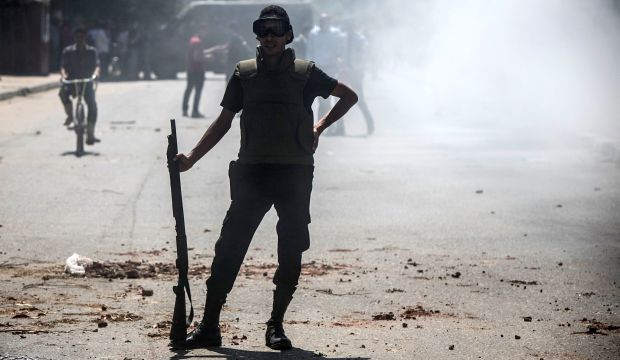Approximately 50 percent of international financial assistance to the Middle East—which makes up just 5.5 percent of the global population—is spent on fuel subsidies, World Bank Vice-President for the MENA Region Inger Andersen said in a recent interview with Asharq Al-Awsat. This is an indication of one of the major imbalances in the region’s economies which is hindering plans for healthy growth.
The list of structural defects in the economies of the region is long and well-known, and we have heard talk about this for decades. The region’s governments remain unable to address them; no-one is dealing with this phenomenon in a serious manner for fear of the political repercussions that could result should they take a step towards cutting fuel subsidies—while a significant proportion of these subsidies goes to serve those who simply don’t need them.
A good example of this is Yemen. The former government tried to partially resolve this issue while confronting a very difficult economic situation, and during a difficult transitional period that was accompanied by bloodshed and terrorist attacks. However, this all blew up in the government’s face, and the Houthi movement was able to exploit the situation to turn the street against the government while taking control of Sana’a itself. At the same time, if the Houthi movement forms the next government, it will face the same issue regarding fuel subsidies and could, in future, take the same decision in dealing with them.
What happened in Yemen was the political exploitation of an economic reality that no-one can escape from, regardless of their political ideology. There are also many precedents in different Arab states during different eras seeking to deal with this same situation. However, they all ended the same way, with political unrest forcing the various governments to back down from their decisions.
Despite World Bank figures regarding the regional growth rate, as well as the projected growth rate next year, we cannot talk about healthy economies in our countries so long as there is violence and terrorism, as well as fighting against political regimes. For example, Syria has witnessed a huge economic setback and nobody knows how it will emerge from this crisis—whether as a single regional entity or a group of divided mini-states. As for Iraq, it is projected to experience negative economic growth at a time when some of its regions are completely outside of central government control. And in Libya, huge oil profits are financing armed militias that are spreading destruction across the country.
At a time of violence and chaos when the war on terror dominates the region, talk about economic reform is akin to a luxury. It would be easier to leave this until a compromise is reached that achieves a semblance of stability that allows the implementation of such plans. For example, it would not have been possible to hold a Gaza reconstruction conference—and for pledges of more than 5 billion US dollars to have been be made—without a ceasefire and the possibility for a long-term political solution. These funds will not reach Gaza if the cycle of violence resumes.
No-one will build or invest in a region where destruction, violence and conflict are raging. The reality is that these economic defects and the ensuing confusion and lack of development have led to a state of affairs that has, for decades, failed to meet the aspirations of the people, and to provide them with sufficient employment, education and healthcare. This, in turn, is the main reason for the ongoing twin phenomena of poverty and ignorance, which create a suitable environment for terrorism and violence to thrive. Unless genuine solutions to these problems are implemented, we will continue to see the spread of different forms of violence and terrorism.
So how can we achieve a breakthrough in dealing with this horrible self-sustaining cycle? This requires the emergence of a group of responsible politicians who are not just selling dreams to their people, but want to achieve genuine reforms instead, ones that might not bear fruit during their own time in office but which must be commenced nonetheless. These leaders must create trust between themselves and the people, which will lead to an environment capable of bearing the price—and the side effects—for any actions taken to repair and reform the economy. We have seen that this is possible in Egypt following the recent decisions to cut fuel subsidies, which the people accepted. If trust and openness exist between ruler and citizenry, unpopular reform is easier to apply.

Trackbacks/Pingbacks